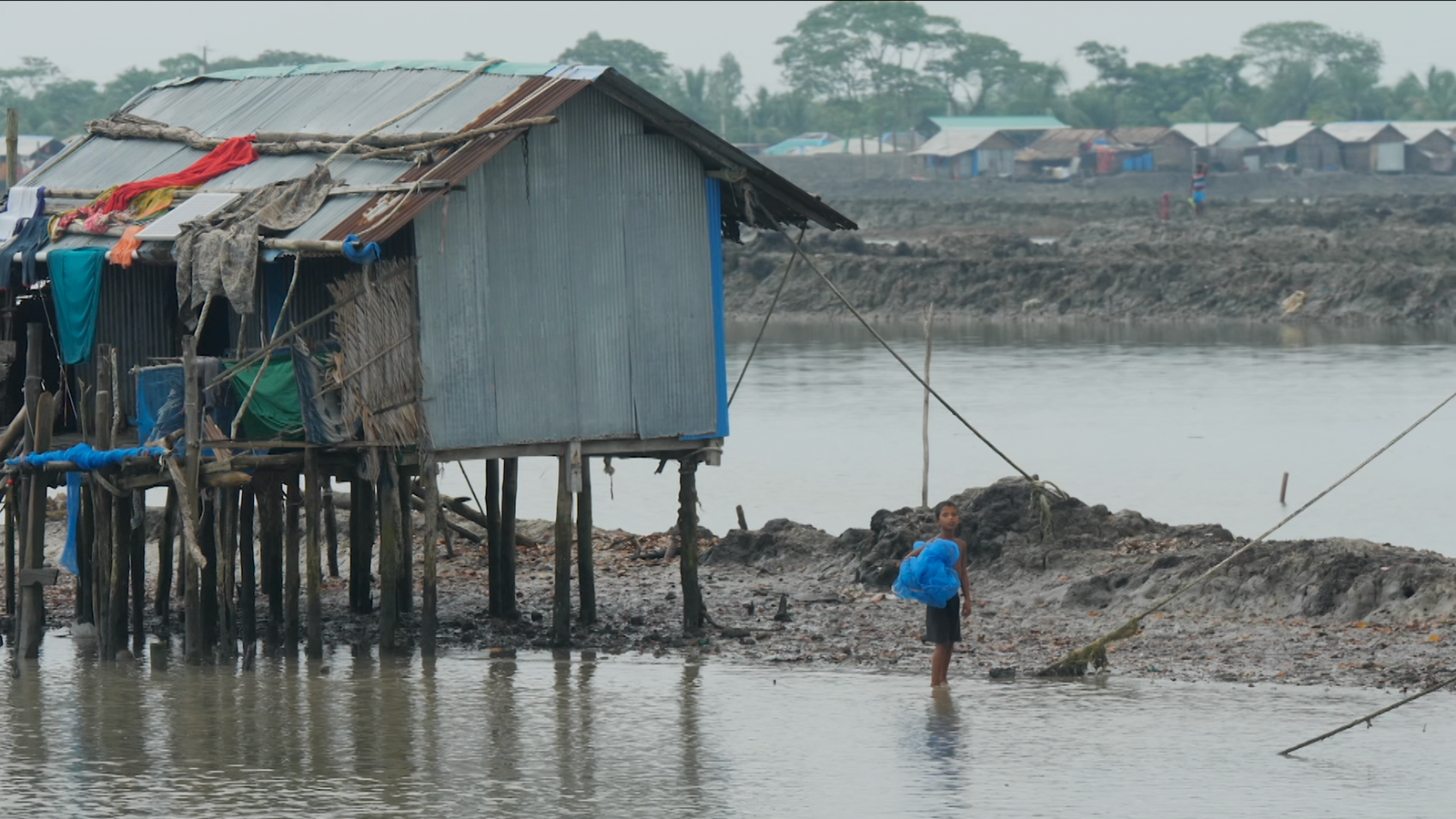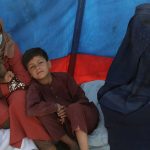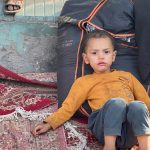They call this “The hanging village”.
Kalabogi, on Bangladesh’s south coast, is difficult to describe because it’s rapidly changing.
To say what it looks like today, might not describe it tomorrow: in fact, it might not even be here tomorrow.
Please use Chrome browser for a more accessible video player
Kalabogi is on the edge of the River Shibsa. Houses here are shack-like with corrugated metal walls and roofs made from the local golpatta palm leaf.
But where once these homes sat on the land, they’ve now been lifted onto bamboo stilts. Some are more than six feet in the air.
They look precarious and wobbly, but people think it’s the only way they can escape the rising river. In truth, they can only outrun it for so long.
Rising sea levels in the Bay of Bengal, just south of here, mean that tidal river levels here are going up.
River erosion, which has always been a part of Bangladesh’s landscape, is happening faster.
When a cyclone hits, as they always have done, the resulting water surges are more devastating.
The land is literally getting washed away, taking homes and hope along with it.
Nur Mohammad, 35, has already had to move home five times. He gestures to a point in the middle of the river, about 200 metres from where we are onshore.
“My first home was over there, on the other side,” he says. “I saw my house washed away in front of me. I can’t describe the pain of seeing that happen.”
Nur tells us his income used to come from fishing and rice production. But the land he used for rice also got washed away. He now leaves his home and family for part of the year to go and work in a factory that makes bricks.
“My new house is over here,” he tells us, pointing to a strip of land, a little further from the river. “But I think now that’s also likely to go”. He adds: “This is what our life is like.”
“We have to do something to save the children that live here,” his mother, Hasina, tells us. “We have to move to a new place, but with what money? We can’t afford to leave.”
Please use Chrome browser for a more accessible video player
Trapped in a cycle of debt and poverty, people are getting desperate.
This village is on the edge of the protected Sundarbans forest. It’s a UNESCO World Heritage Site and it’s illegal to fish here.
But it’s a rich habitat for wildlife, fish and shrimp and at night, next to the forest’s edge, we see flashlights on the water. We spot dozens of fishermen, crouched in wooden boats sorting their catch.
When we get to Nazrul Sheikh, he thinks we’re the coastguard coming to chase him away.
“They don’t like us being here,” he says. “But what can we do? We need to fish to survive.”
He’s using a fine mesh net that is illegal, too, but they catch more of the baby shrimp that he’s looking for.
“Our lives and our families depend on this,” Nazrul says, “if we don’t catch enough, we can’t pay for our boats and everyone here has loans to repay.”
Subscribe to ClimateCast on Spotify, Apple Podcasts, or Spreaker.
Tonight, Nazrul says, he’s been out here for six hours and caught about thirteen dollars worth. It’s a good night, he says, although in reality, it’s only a brief reprieve.
The river might provide income tonight, soon, he says, it will probably wash away his home.
This is why Bangladesh says the world must act – with this year’s UN Climate Conference needed not to talk about what will happen, but about what’s happening right here, right now.






















